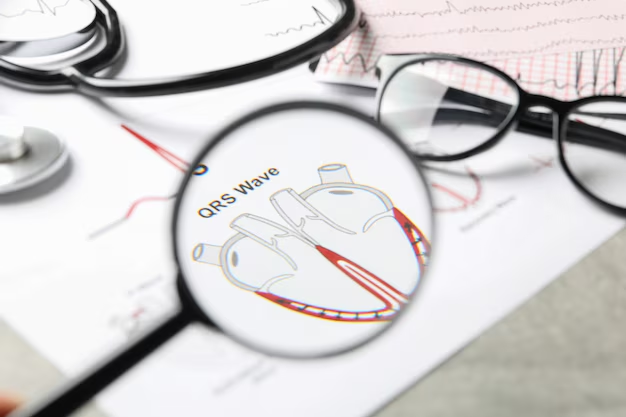Does Medicaid Cover Contact Lenses? Everything You Need to Know
When navigating the complex world of Medicaid benefits, questions about coverage can often arise, especially regarding specific health aids like contact lenses. This article aims to address the pressing question: Does Medicaid pay for contact lenses? We will explore the basics of Medicaid vision benefits, offer insights into eligibility and coverage criteria, and provide practical advice for accessing and understanding your benefits.
Understanding Medicaid and Vision Care
Medicaid is a state and federally funded program that provides healthcare coverage to eligible low-income individuals and families. It covers various medical services, with the specifics of coverage differing from state to state. Vision care under Medicaid can sometimes be overshadowed by other health benefits, but it's crucial for many individuals who rely on corrective lenses for everyday function.
General Coverage Guidelines
Medicaid's coverage for vision care typically includes:
- Routine eye exams: These are often covered to ensure that vision issues are detected early.
- Prescription eyeglasses: Generally, Medicaid covers the cost for one pair of prescription glasses, including frames and lenses.
- Specialist referrals: If necessary, Medicaid may cover visits to an optometrist or ophthalmologist for specialist care.
Contact Lenses: A Special Case
Contact lenses are considered a special case in Medicaid coverage. Unlike glasses, contact lenses are often categorized as elective or non-essential. Hence, they may not be covered in the same straightforward way as eyeglasses.
When Does Medicaid Cover Contact Lenses?
While Medicaid primarily covers glasses, there are certain conditions under which contact lenses might be covered:
- Medical Necessity: If contacts are deemed medically necessary—such as for certain eye diseases, or if glasses cannot deliver the same corrective benefit—coverage might be available.
- Specific Conditions: Conditions like aphakia (absence of the eye lens) might require contact lenses, which can make these corrective measures eligible for Medicaid coverage.
Navigating Your State's Medicaid Vision Benefits
Since Medicaid is administered differently in each state, understanding your specific state's policy on vision care is crucial. Here are some steps to guide you:
Consult Your Medicaid Handbook: Each state provides a handbook that outlines the benefits. Look for sections on vision care to check if contacts are listed under special circumstances.
Reach Out to Your Medicaid Office: Directly contacting your state's Medicaid office can provide clarity. They can explain what's covered under vision benefits and how to apply for coverage for contact lenses if needed.
Discuss with Your Eye Care Provider: A conversation with your optometrist or ophthalmologist can be valuable. They can provide documentation or support that demonstrates the medical necessity of contact lenses.
Other Resources and Alternatives
Aside from Medicaid, there may be other resources to consider if contact lenses are not covered:
- Supplemental Plans: Some states or private organizations offer additional plans specifically for vision care, which might cover contact lenses.
- Discount Programs: Investigate if any discount programs are available through your eye care provider or national organizations.
- Flexible Payment Plans: Some optometrists provide payment plans to make contact lenses more affordable over time.
Practical Tips for Managing Your Vision Health with Medicaid
To ensure that you're maximizing your vision health benefits with Medicaid, consider these practical tips:
📝 Create a Medicaid Checklist
- Review your benefits annually to understand any changes.
- Schedule regular eye exams to maintain optimal vision health.
- Keep all documentation from your eye care visits, especially if a medical necessity needs to be demonstrated for contact lenses.
📞 Communicate Clearly
- Stay informed by regularly communicating with your Medicaid office.
- Ask your eye care provider for advice on the most beneficial and affordable solutions within your Medicaid coverage.
🔄 Evaluate Alternative Options
- Research supplemental plans and discount programs early.
- Consider the longevity of benefits: Powerfully navigating Medicaid can set long-term healthy habits and access pathways.
Closing Thoughts: Empowering Your Vision Choices
Understanding Medicaid's stance on contact lenses requires careful navigation of state-specific policies. While the answer to whether Medicaid covers contacts isn't always a straightforward "yes," knowing how to demonstrate medical necessity and exploring all potential resources can open doors to obtaining the necessary vision aids. Advocacy, personal research, and active communication with health providers and Medicaid representatives can empower you to make informed decisions, ensuring your visual health needs are comprehensively met regardless of your state's policies.
In essence, seeking vision care doesn't stop at understanding what's available through Medicaid; it extends into making proactive choices about your eye health today and in the future. Keeping abreast of your benefits and actively engaging with all available resources is essential to maintaining optimal vision health.

Related Topics
- A/r Medicaid
- Am I Eligible For Medicaid
- Am I Qualified For Medicaid
- Are Illegal Aliens Eligible For Medicaid
- Are Illegal Immigrants Eligible For Medicaid
- Are Medicaid Payments Frozen
- Are Medicare And Medicaid Social Insurance
- Are My Children Eligible For Medicaid
- Are Trusts Exempted From Ssi And Medicaid
- Are Undocumented Immigrants Eligible For Medicaid
